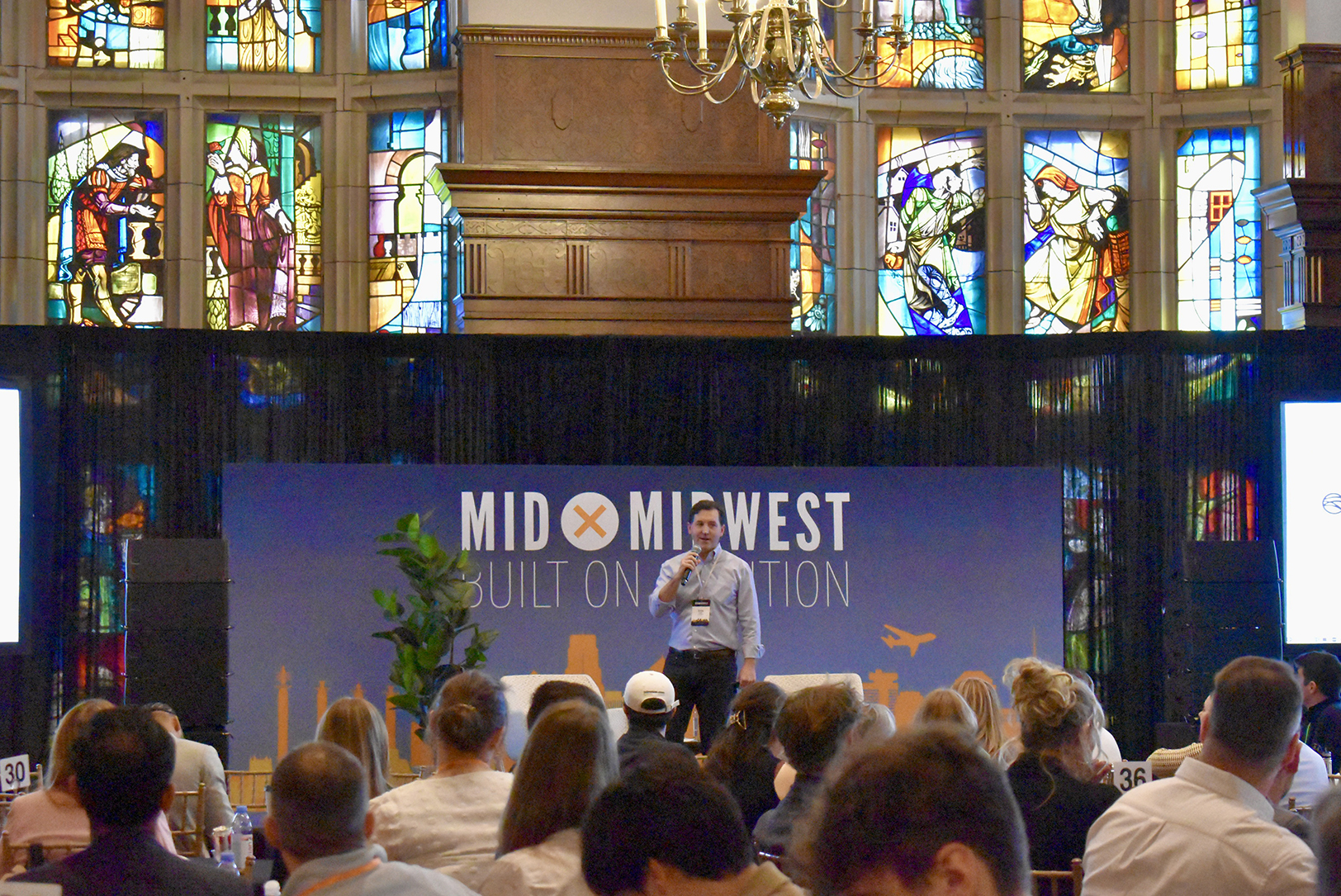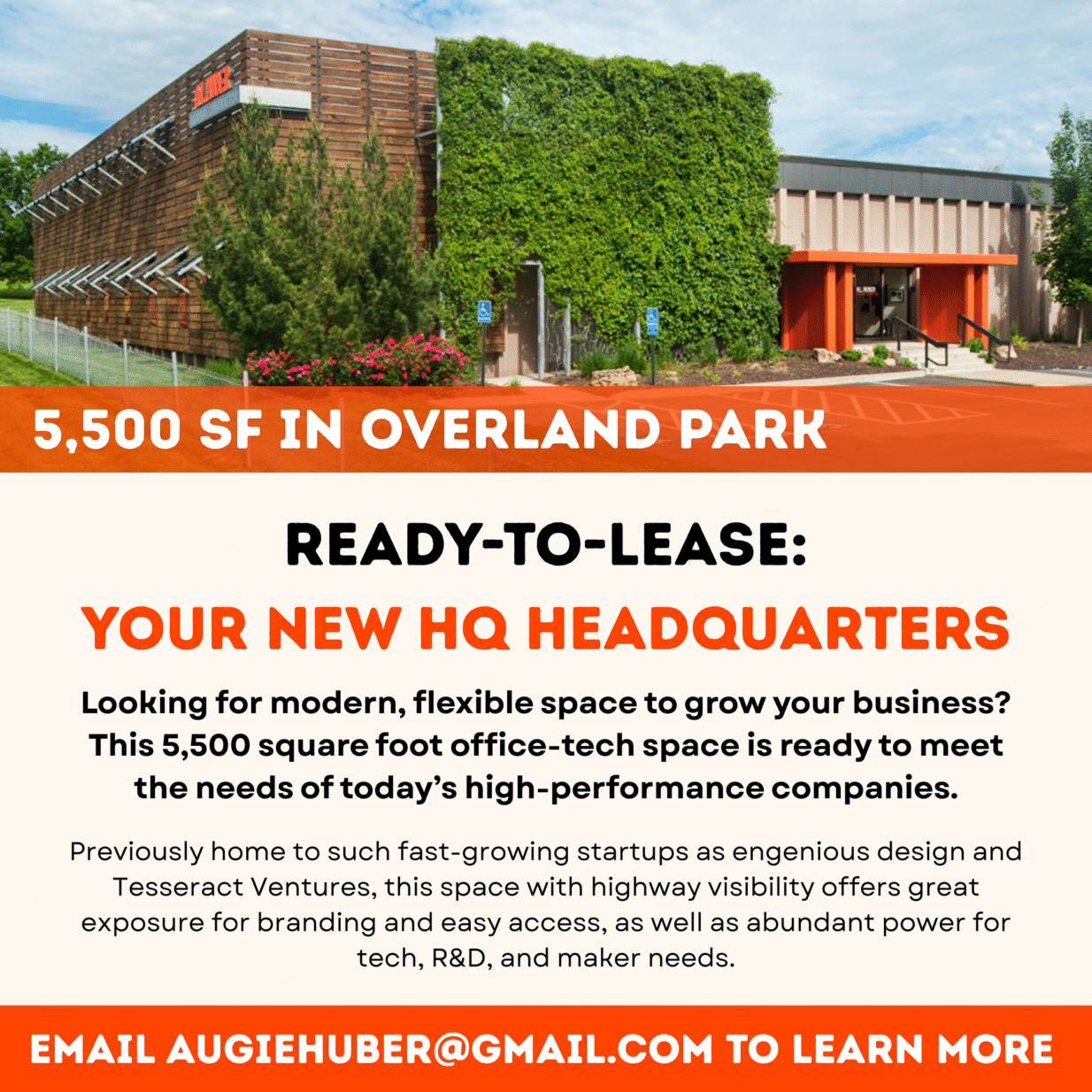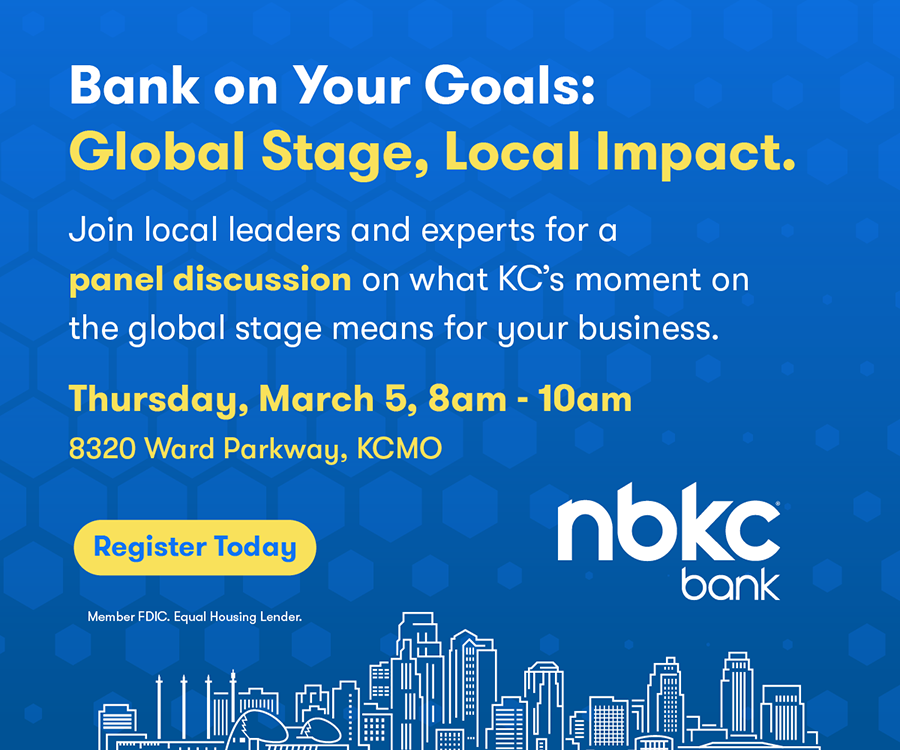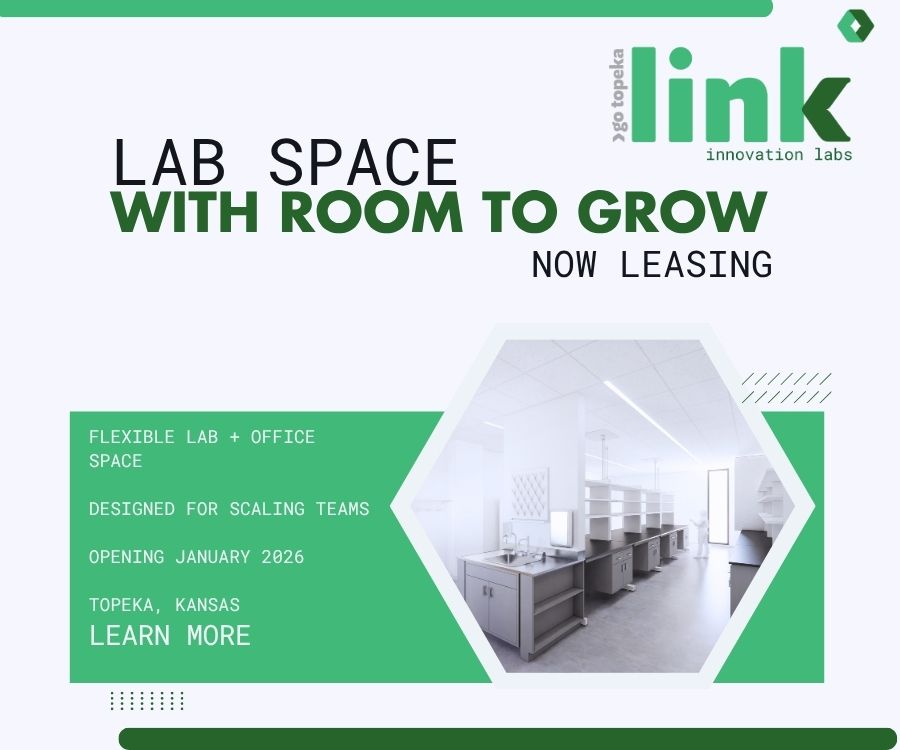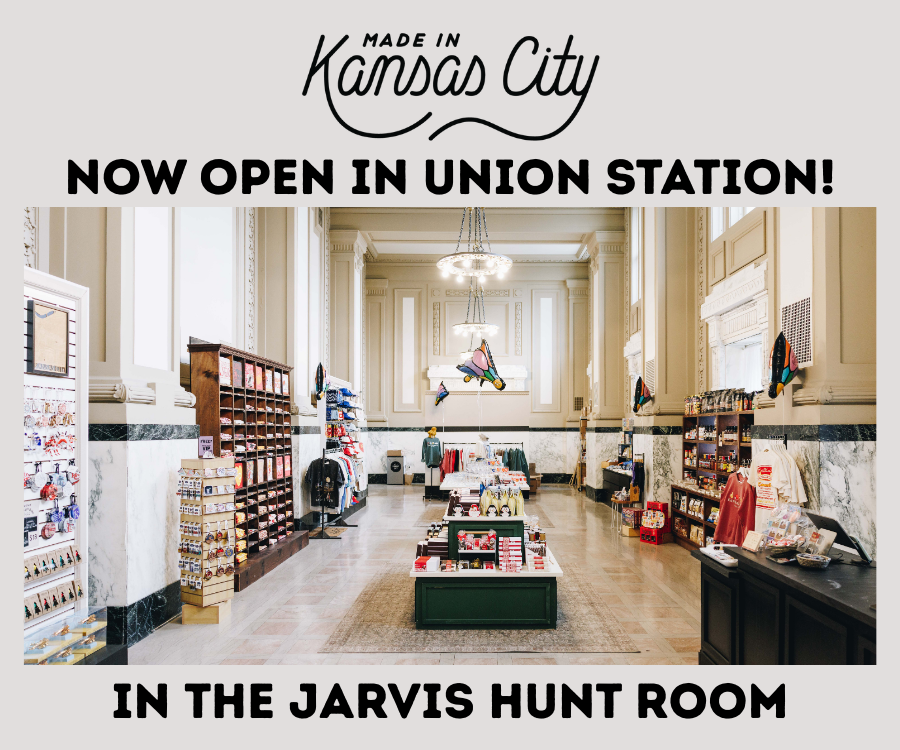New tech opportunities — like artificial intelligence — hold the potential to equalize the Kansas City region among more established startup hubs, investment leaders said Thursday, but to fully take advantage, entrepreneurs who want strong, lasting companies must have a fire inside them.
Not to mention grit.
“Several really incredible entrepreneurs said, ‘I think the one thing that we could use even more of is ambition,’” said Dan Kerr, managing partner at Flyover Capital, speaking Thursday at the annual MidxMidwest startup-investor summit. “[Our region has] high-substance founders, we have great industry professionals that build their businesses, but we also have this thing called humility, which doesn’t always parallel ambition.”
Finding balance between Kansas City’s modesty and its boldness is key, he added.
“We actually want to celebrate it, we want to encourage it, and we want to be backing people who are thinking of the next level,” Kerr said. “We want to build the next generation of great tech companies in this region.”
PHOTOS: Starty Party turns up the volume on Kansas City tech, collaboration
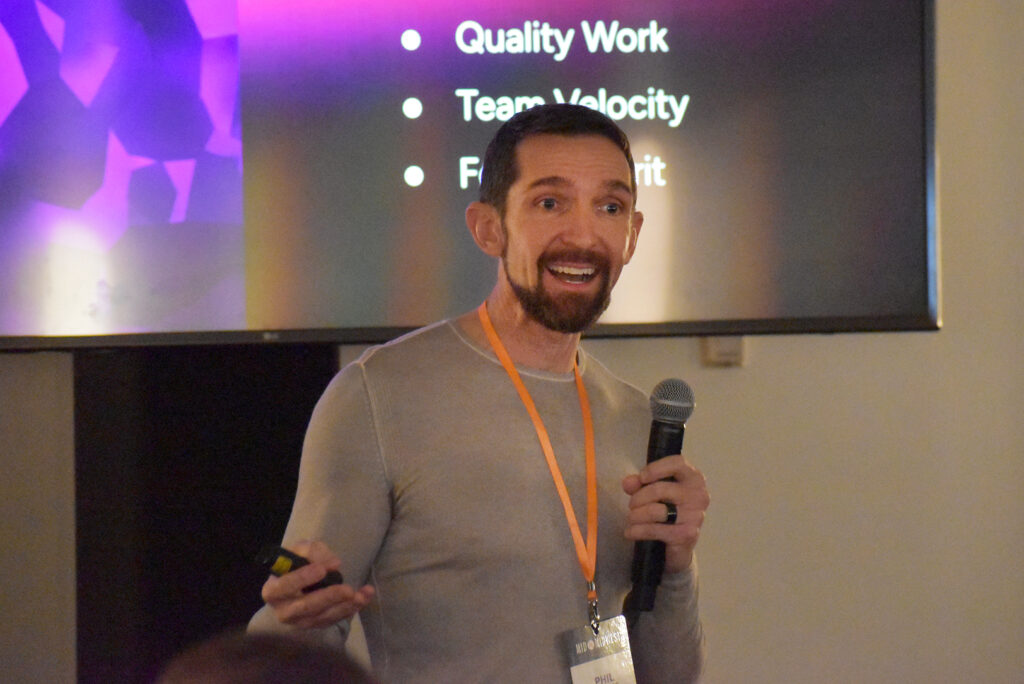
Phil Reynolds, CEO and co-founder of DevStride, speaks during a MidxMidwest session on building Kansas City tech companies with AI; photo by Nikki Overfelt Chifalu, Startland News
For Phil Reynolds, CEO and co-founder of DevStride, ambition means learning to adapt fast in a world where AI is changing how software is built. Reynolds led one of the conference’s breakout sessions, “Beyond Vibe Coding: Building AI Software That Lasts.”
“It’s a very controversial topic,” Reynolds said. “A lot of my good friends are senior engineers; I’m a senior engineer, and it’s kind of 50/50 in my universe whether people think this is the greatest thing that ever happened or a lot like the apocalypse for engineering and craft.”
Reynolds founded his first company in Springfield, Missouri, more than 20 years ago, scaling it to hundreds of engineers and raising multiple funding rounds before starting DevStride, a project management software company. He’s also invested in more than 20 startups, giving him a wide view of how founders are navigating AI’s rapid evolution, he said.
Drawing from that experience, Reynolds told founders that building resilience and efficiency are the most important forms of ambition.
“If you’re brilliant at this, you’ve got about a 10 percent chance of ever giving ROI back to your shareholders,” he said. “It’s really hard. Sometimes it’s not even in your control. It’s just market timing and a lot of things that go into it.”
Resilience as a foundation
While founders cannot control economic shifts or competitors, Reynolds said, they can design businesses that endure them.
“It’s my job to be resilient, to design a business that can survive,” he said. “You can’t control what your competition is going to do. Sometimes you have no idea that a thing you’re building right now is about to be completely wiped out by some upmarket competitor.”
Among other variables that are out of entrepreneurs’ control: regulation, market timing, or sudden technology shifts, Reynolds said.
By contrast, factors in their hands: customer obsession, capital efficiency, and grit.
“If you are in a startup, you should be on the phone with a customer, on Zoom with a customer, in a customer’s office, living their day, drinking their water, breathing their air every day,” Reynolds said.
“The dumbest thing you can do as a startup is hire a bunch of people and start spending money when you have no idea if your business idea is good,” he added. “Spend as little as possible. Rapidly iterate.”
Reynolds emphasized that startups don’t fail because they run out of money; they fail because founders give up.
“Most nights I’m up at 2 o’clock in the morning on my laptop trying to put a bow on a pull request,” he said. “Founder grit is the most important area.”
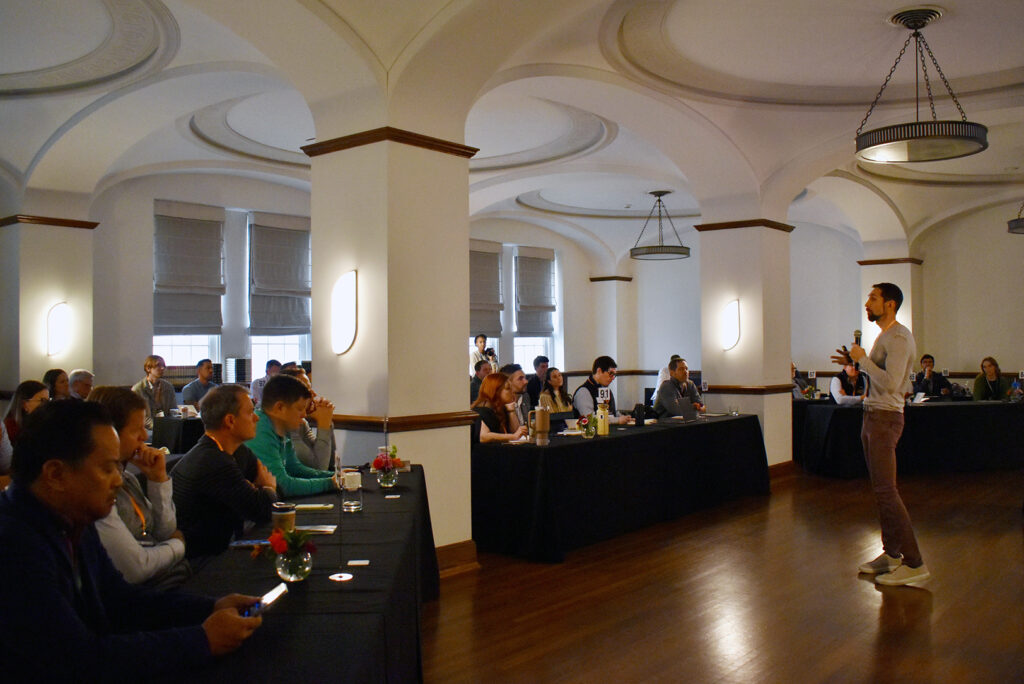
Phil Reynolds, CEO and co-founder of DevStride, leads a MidxMidwest session on “Beyond Vibe Coding: Building AI Software That Lasts” at Hotel Kansas City; photo by Nikki Overfelt Chifalu, Startland News
Building Midwest resiliency with AI
Reynolds explained that new AI tools now make it possible for smaller teams — even single individuals — to build full-scale products.
“You could do an entire startup with one individual,” he said. “Now, I’m not saying you should, but you really only need one person today. We have intelligent agents that we can direct on our behalf, and they can go do really valuable things.”
He described how tools like Claude Code, GitHub Copilot, and OpenAI’s Codex have turned what once required large engineering teams into tasks that a few well-equipped founders can complete in months instead of years.
“In 2019, most startups needed a few million dollars and big teams,” he said. “Now, I’m seeing companies build the same value with two people and $500,000, in six months.”
Reynolds also broke down how large language models (LLMs) actually work, explaining their statistical nature.
“LLMs are just pattern-matching machines,” he said. “They don’t inherently know if anything you’re telling them to do is good or bad. So if you don’t know where to start, go to Figma, draw a UI, and let AI tools help you prototype it before handing it off to an engineer. This workflow just works.”
The new kind of engineer
When asked what kind of engineers startups should be hiring, Reynolds said versatility and customer empathy have become more prized than raw coding ability.
“Senior engineers with product expertise are invaluable resources right now,” he said, adding, “If you really understand the customer you’re trying to build for, and you understand how code is supposed to be put together, you can sit down with one of these tools and build a real product.”
Reynolds predicted that the next wave of successful engineers will follow the framework of someone who understands the customer and business as well as the code.
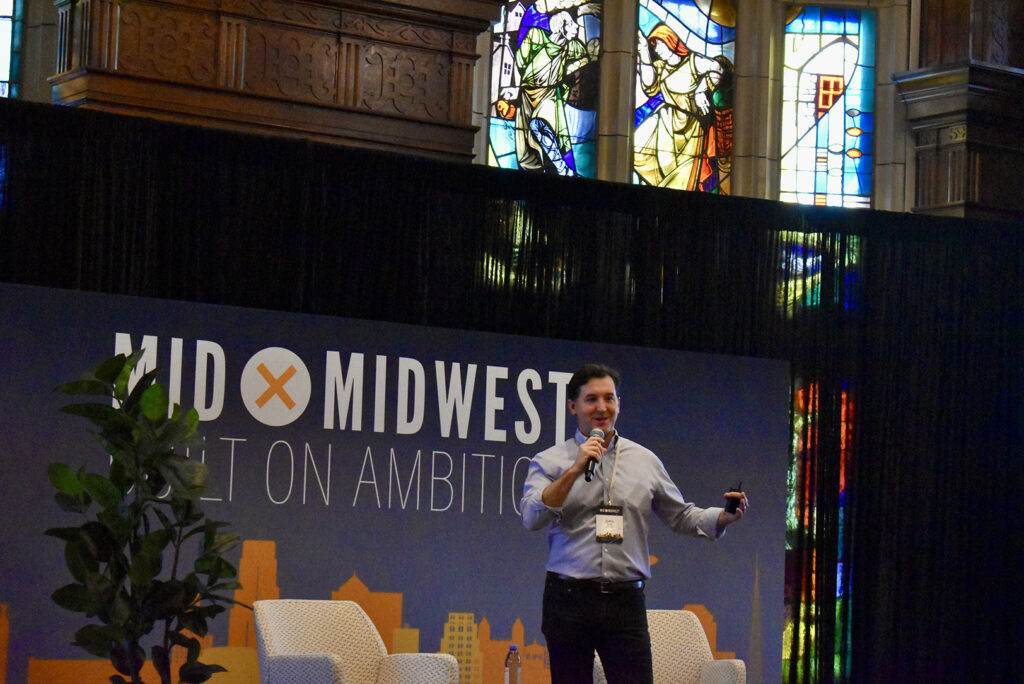
Dan Kerr, managing partner at Flyover Capital and co-founder of the annual MidxMidwest startup-investor summit, speaks on stage at Hotel Kansas City; photo by Nikki Overfelt Chifalu, Startland News
Ambition as Kansas City’s advantage
For startups to thrive, Reynolds said, they must stay adaptable and efficient amid rapid change.
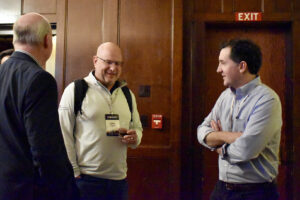
Greg Kratofil, Polsinelli, a longtime sponsor of the summit, shares a laugh with Dan Kerr, Flyover Capital, in between sessions at MidxMidwest; photo by Nikki Overfelt Chifalu, Startland News
“This is all moving faster than anyone expected,” he said during Thursday’s session. “It’s a moment for builders.”
That spirit of momentum was evident throughout MidxMidwest, where conversation centered on Kansas City’s rising confidence as a launchpad for bold ideas.
Kerr, whose firm founded the summit alongside Iron Prairie Ventures, echoed that sentiment, characterizing ambition not just as an attitude, but as a commitment to lasting impact.
“At this generational point in technology,” he said, “it’s the time for ambitious founders to go out and win.”




